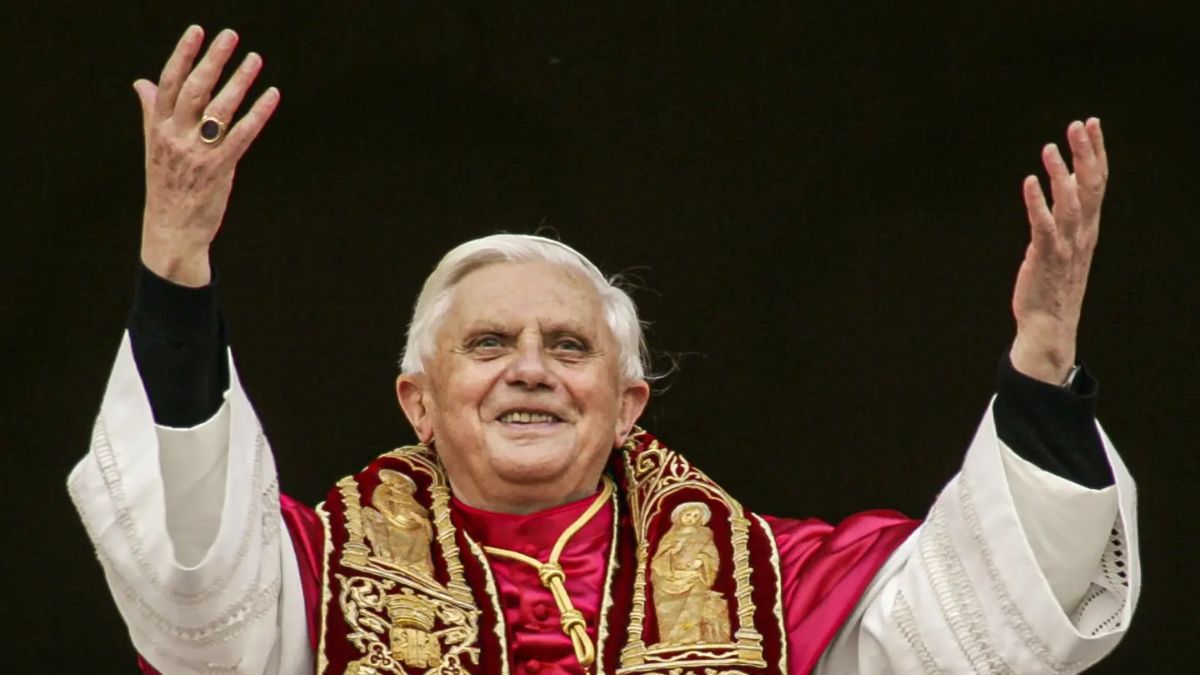As the world mourns the death of Pope Francis, who passed away on Monday (April 21), it is time to remember his predecessor Pope Benedict XVI. Benedict, born Joseph Ratzinger, was elected by cardinals of the Roman Catholic Church on April 24, 2005. He succeeded the charismatic Pope John Paul.
If you are a history geek who loves to learn about important events from the past, Firstpost Explainers’ ongoing series, History Today will be your one-stop destination to explore key events.
On this day in 1990, the Hubble Space Telescope was launched into the Earth’s orbit.
Here is all that took place on this day across the world.
Benedict XVI installed as the Pope
One of the most important events of the 21st century occurred on April 24 when Pope Benedict XVI was installed to head the Roman Catholic Church. Benedict was presented with the symbols of power - the Papal ring and the pallium, a narrow stole of white wool in an open-air mass in St Peter’s Square in Rome.
Born Joseph Ratzinger in Germany’s Bavaria, he was elected pope on April 19, 2005, following the death of Pope John Paul II and became the first German pope in nearly 1,000 years.
According to a BBC report, the ceremony commenced with the then 78-year-old German Pontiff and the Roman Catholic College of Cardinals proceeding to the site of Saint Peter’s tomb, located beneath Saint Peter’s Basilica, for a period of prayer. He emerged from the church into the sunshine of St Peter’s Square to greet the crowds.
Dressed in a gold robe over sacred white vestments, he greeted the crowd of cheering pilgrims who applauded loudly as they saw Benedict XVI. According to the BBC, addressing his first Mass following his election as the Pope, he said, “I am not alone. I do not have to carry what in truth I could never carry alone.” He further said, “All the Saints of God are there to protect me, to sustain me and to carry me. And your prayers, my dear friends, your indulgence, your love, your faith and your hope accompany me.”
Pope Benedict XVI was part of the Nazi Germany and had joined the Hitler Youth. Following his release after the end of World War II, he went to study for the priesthood and was ordained five years later. During his tenure as a professor at the University of Bonn, Ratzinger was selected to serve as a theological advisor to Cardinal Joseph Frings of Cologne, a prominent critic of Nazism, for the Second Vatican Council, which convened between 1962 and 1965.
In 1977, he was named bishop of Munich and Freising by Pope Paul VI. Soon after, he was named a cardinal, a member of the administrative body that elects the pope, reported the Conversation.
Hubble Space Telescope launched into Earth’s orbit
On this day in 1990, the US space shuttle Discovery placed the Hubble Space Telescope into an orbit around Earth. Named after American astronomer Edwin Hubble, the telescope was a joint project between Nasa and the European Space Agency, developed to capture high-resolution images of the universe from beyond the distortion of Earth’s atmosphere.
Hubble was deployed into a low Earth orbit about 547 kilometres (340 miles) above the planet’s surface. Its location in space allowed it to avoid atmospheric interference, offering scientists an unprecedented, unobstructed view of the cosmos. The telescope is equipped with a 2.4-meter (7.9-foot) primary mirror and a suite of scientific instruments capable of capturing images in ultraviolet, visible, and near-infrared light.
Initially, however, Hubble’s mission faced serious challenges. Shortly after deployment, it was discovered that its primary mirror had a slight spherical aberration, which blurred its images. This issue was corrected during a 1993 servicing mission by astronauts, who installed corrective optics in an operation often referred to as putting “glasses” on Hubble.
Once the issue was resolved Hubble began transmitting breathtaking images that transformed the understanding of the universe. The Hubble Space Telescope has become one of the most iconic and productive scientific instruments in history.
This Day, That Year
US forces launched a mission to rescue American hostages in Iran on this day in 1980.
In 1898, Spain declared war on the United States.
In 1792, French army officer Claude-Joseph Rouget de Lisle composed La Marseillaise, the French national anthem.


)

)
)
)
)
)
)
)
)



